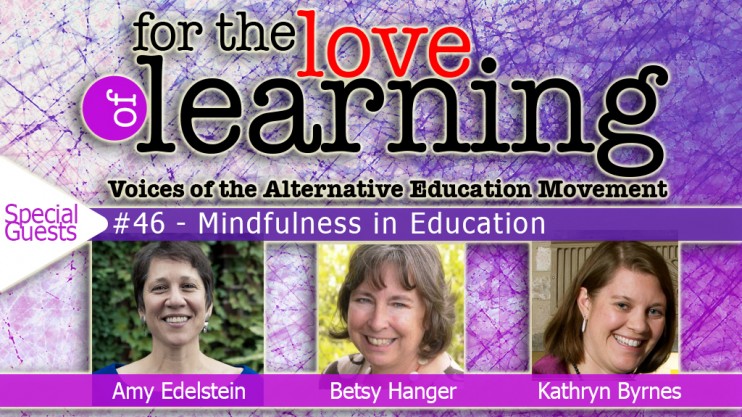Join Lainie Liberti, Betsy Hanger, Kathryn Byrnes and myself for an indepth discussion about our experience bringing mindful into the school system.
For the Love of Learning Episode 46
Mindfulness in Education
Description:
First, we must ask, what is mindfulness?
Jon Kabat-Zinn, the biologist who first coined the term “mindfulness” in the ’70s, defines it as a state of mind: the act of “paying attention on purpose” to the present moment, with a “non-judgmental” attitude. But mindfulness is really a secular philosophy and set of techniques adapted from thousands-of-years-old Buddhist meditation traditions—ones that only recently landed in mainstream Western consciousness.
There is a growing body of scientific research which illustrates the positive effects of mindfulness in education, including improved attention, reduced stress and better emotional regulation with an improved capacity for compassion and empathy. In addition, practice of long-term mindfulness has shown that it promotes the thickening of the cortical regions related to attention and sensory processing and has been considered beneficial for children and adolescents faced with anxiety and even ADHD.
Educators who utilize mindfulness in education have found that that it fosters greater concentration, heightens understanding, promotes learning, and a creates a more peaceful and happier student.
In contrast to the U.S. education system’s focus on quantifiable cognitive intelligence, mindfulness promotes a type of intelligence of the mind that is difficult to quantify: It is the foundation of good character, resilience, and long-term life fulfillment. It is this part of the mind that mindfulness seeks to address. We have a lot to talk about tonight.
